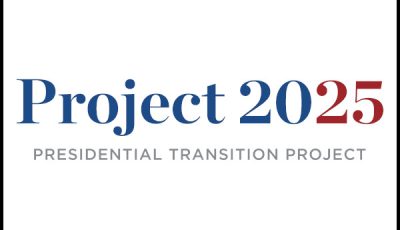Heavy Metal Porn and Lightweight Thinking
 COLORADO SPRINGS – The first time I heard the voice of James Hetfield, it was growl-shouting the words “Lashing out the action, returning the reaction / Weak are ripped and torn away / Hypnotizing power, crushing all that cower / Battery is here to stay!”
COLORADO SPRINGS – The first time I heard the voice of James Hetfield, it was growl-shouting the words “Lashing out the action, returning the reaction / Weak are ripped and torn away / Hypnotizing power, crushing all that cower / Battery is here to stay!”
Soon, evidently, I’ll be able to hear that same voice (presumably more solemnly) saying something along the lines of “Porn is bad, m’kay?”
Yes, that’s right: The voice of the modern American sexual ethos, James Hetfield, soon will be coming to a small arthouse-style theater relatively near you, narrating a new anti-porn documentary called Addicted to Porn: Chasing the Cardboard Butterfly.
Directed by Justin Hunt, whose previous work has focused on things like meth addiction and absent fathers (the latter of which featured Hetfield talking about his own upbringing), “Addicted to Porn” is offered as a similar sort of warning about the perils of porn’s current ubiquity.
“Like it or not, porn is here and it is harmful,” the film’s synopsis reads, leaving no room for doubt about its thesis.
“In this controversial film, award-winning filmmaker Justin Hunt dissects the impact of pornography on societies around the globe, from how it affects the brain of the individual, to how modern technology leads to greater exposure to youth, to watching it literally tear a family apart,” the synopsis continues. “In what may well be one of the most devastating issues in modern culture, this film will break down the damage that porn is doing to us [as] a human race and leave you thinking that it’s clearly time that we start taking porn addiction a bit more seriously.”
Hmmm. Somehow, I doubt it will leave me feeling anything of the sort.
To be fair, I haven’t seen Hunt’s film yet, so maybe I’ll find the evidence he presents more convincing than the bare claim porn is “one of the most devastating issues in modern culture,” but I’m not going to hold my breath waiting to be so persuaded.
For starters, I’m not sure too many homeless people are greatly concerned about porn’s impact on society. I’ll also go way out on an amputated limb to suggest those maimed in terrorist bombings (or state-sponsored military reprisals thereto) would necessarily agree porn ranks near the top of their list of concerns.
Has your house been foreclosed upon at some point in recent years? Did you lose your job to forces beyond your control? Well, that all sucks — but what should really be troubling you is the possibility your former neighbor or employer might be masturbating to something really gross at this very moment. Shit, he might even be doing so while making use of public transportation!
The other reason I’m skeptical this new anti-porn documentary will cause me to freak out about the easy availability of smut where others have failed is the director’s fondness for making sweeping assertions, some of which sound a bit too much like they were recently and spontaneously extracted from the deepest recesses of his rectum.
In a recent, wide-ranging interview that starts by addressing the subject of fatherless households, Hunt conceded the issue of “fathers somehow wounding their children and the ensuing struggles” is something that has existed for quite some time, but he asserts it exploded into an epidemic of sorts in the years following World War II.
“It was then that gender roles were much more defined and the separation began between father and child,” Hunt claimed. “Men were going off to work and coming home with nothing left to offer their children, whereas, in the past, they tended to work together at home as a family and the relationship was much more incubated.”
While I’m not entirely closed to his assertions, might it not be helpful to cite some sort of basis for this claim? Does he really mean to suggest gender roles were less “defined” prior to World War II?
“Ironically, if you really think about it, the entire concept of ‘adolescence’ is a fairly new idea,” Hunt continued.
It’s sort of an odd assertion regarding a word that has been in use since the 15th Century and is derived from the Latin term adolescere, which meant essentially the same thing as the modern English term: “to grow into maturity.”
To be fair, I think what Hunt meant is the term didn’t come to indicate a putting off of adulthood, which is clearly what he takes it to mean, until more recently.
Still, reading the rest of his explication only raises more questions for me regarding the reliability of the claim.
“We didn’t really see these phases of teenage angst and curiosity and being lost, so to speak, until we started seeing generations of children without engaging fathers,” Hunt said. “Sadly, what was once a period of, say, age 17-19 in the first generation of adolescent children, is now going up into the 40s and 50s with so called adults still wandering around like lost boys and girls; the ‘Peter Pan’ syndrome, if you will.”
With all due respect, Justin, I’m calling bullshit.
This claim about extended adolescence being something entirely new is nothing but a romanticizing of the past and no better than longing for the (mythological) time when “men were men” and pussy-whipped academics had yet to take over America.
You know, the time of John Wayne and Gary Cooper, when everything was decent, justice reigned supreme across the land and we Americans were all united and patriotic — except maybe those uppity colored folks who wouldn’t stop complaining every time we hung one of them from a tree.
Oh, and I guess another exception was those loudmouthed bitches who kept going on about wanting more out of life than what should have been a perfectly satisfying existence of child-bearing, child-rearing, meal preparing and scrubbing the skid marks out of her noble, square-jawed, broad-shouldered husband’s underwear. (Luckily for them, gender roles were about to become more clearly defined, or maybe less defined, or whatever it is Hunt is trying to say about gender roles.)
If Hunt wants me to believe there were no Peter Pan-type adults before J. M. Barrie literally sat down and wrote Peter Pan, he’s going to have to explain the well-documented existence of age-inversion in Victorian Literature. Heck, he can start by rebutting the arguments found in a scholarly treatise entitled, appropriately enough, “Age Inversion in Victorian Literature.”
Along those same lines, if Hunt’s new documentary is going to persuade me it’s time to “start taking porn addiction a bit more seriously,” first he’s going to have to persuade me porn addiction is an actual thing.
Image: James Hetfield of Metallica performs on May 9, 2015, during Rock in Rio USA at the MGM Resorts Festival Grounds in Las Vegas. Photo placed in the public domain by the photographer.













